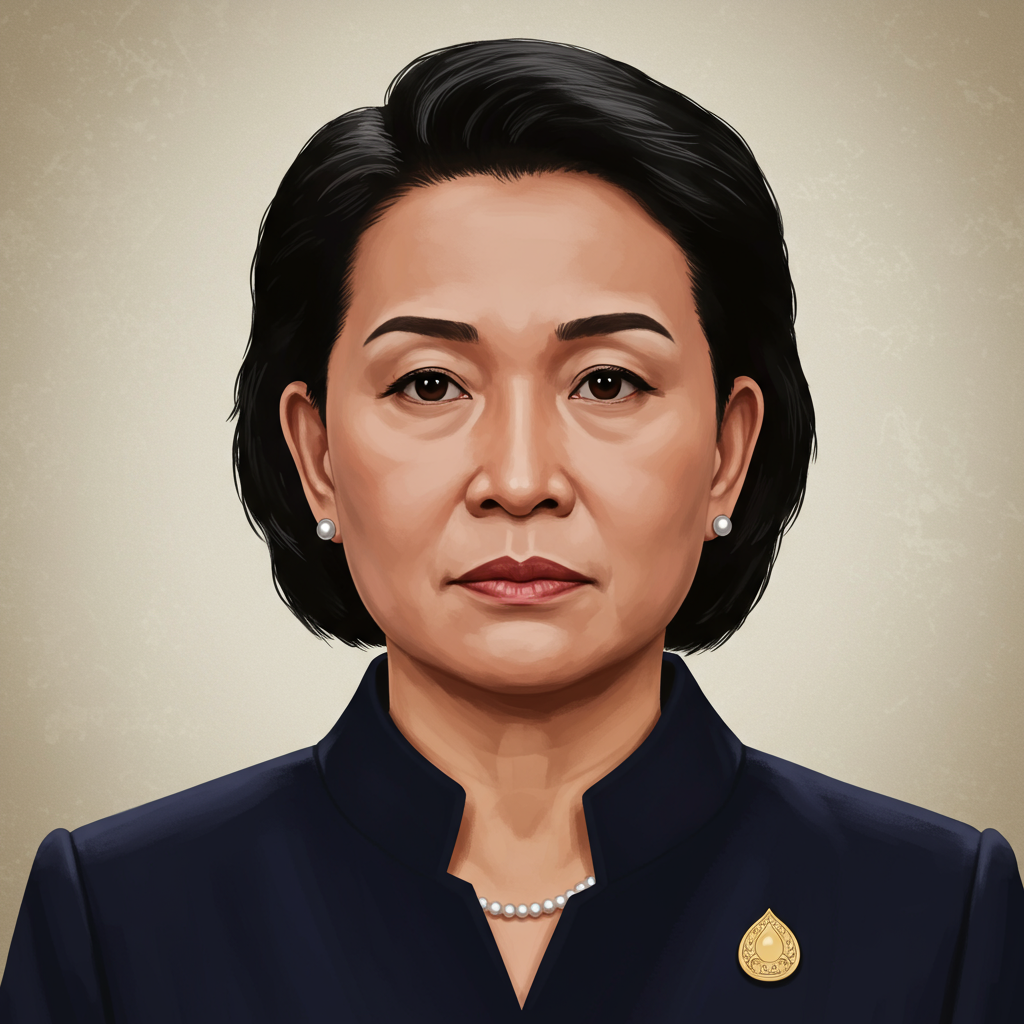In a dramatic turn for Thailand’s political landscape, the nation’s top judicial body has ordered the temporary removal of prime Minister Paetongtarn Shinawatra. The Constitutional court announced her suspension from office on Tuesday, July 1, 2025. This significant decision comes less than a year into her tenure as head of government. The court is currently considering a petition that alleges ethical violations against the Prime Minister.
The suspension represents a major challenge for the ruling coalition. It immediately strips Paetongtarn Shinawatra of her official powers and duties while the legal process unfolds. The nine-member Constitutional Court will now deliberate on the substance of the petition brought against her.
Court Action and Immediate Impact
The Constitutional Court’s decision to suspend Prime Minister Paetongtarn was effective immediately from Tuesday. The court’s statement confirmed the temporary nature of the suspension. Her powers are halted until the court issues its final ruling on the ethics case. This move is standard procedure when the court accepts a petition questioning a prime minister’s eligibility or conduct.
The vote among the nine judges was decisive. Seven out of nine justices backed the motion to suspend her duties pending the full review. This strong majority indicates the court found sufficient grounds to proceed with the case and implement the temporary measure. The government must now operate with an acting prime minister until the situation is resolved.
The Nature of the Allegations
The petition prompting this judicial intervention was filed by a group of senators. While specific details of the alleged ethical violation were not immediately elaborated by the court or the original report, such cases in Thai politics often involve accusations related to conflicts of interest, improper appointments, or actions deemed contrary to the constitution or ethical standards for political office holders. The petition challenges Paetongtarn’s fitness to remain in her position based on these allegations.
Understanding the source is key. Thailand’s Senate is largely appointed and has historically been perceived by some as aligned with conservative or establishment forces. Their role in initiating a petition against the elected prime minister highlights the ongoing tensions within the country’s political structure. This action underscores the power held by non-elected bodies within the Thai system.
Political Context and Significance
The suspension of Paetongtarn Shinawatra is a significant event. It is arguably the biggest challenge faced by her administration since she took office. Coming less than twelve months into her premiership, it creates immediate uncertainty. Her government, formed after the 2023 general election, has been navigating complex political dynamics.
Paetongtarn leads the Pheu Thai Party. This party is closely associated with her family, most notably her father, former Prime Minister Thaksin Shinawatra, and her aunt, former Prime Minister Yingluck Shinawatra. Both were also removed from power via judicial or military intervention. This historical context adds a layer of complexity and familiarity to the current situation. Many observers see this latest development through the lens of Thailand’s recurring political cycles involving the Shinawatra family and the established powers.
Historical Parallels in Thai Politics
Thailand has a history of political leaders, particularly those from the Shinawatra camp, being removed from office through court rulings or military coups. Thaksin Shinawatra was ousted by a military coup in 2006. His sister, Yingluck Shinawatra, was removed by the Constitutional Court in 2014 shortly before another military coup. These events illustrate a pattern where political conflicts are often resolved through institutional interventions rather than purely parliamentary processes.
The current case against Paetongtarn, initiated by senators and taken up by the Constitutional Court, fits into this historical pattern. It raises questions about the stability of democratic institutions and the separation of powers in Thailand. Each such event adds to the country’s reputation for political volatility.
What Happens Next?
With the Prime Minister suspended, the Constitutional Court will now undertake a full review of the senators’ petition. This process involves examining evidence, potentially hearing arguments from both sides, and deliberating extensively. There is no fixed timeline for this process. Court deliberations can take weeks or even months depending on the complexity of the case and the court’s workload.
During this period, a deputy prime minister will likely assume the role of acting prime minister. This ensures the day-to-day functions of the government continue. However, major policy decisions or significant political initiatives may be delayed or complicated by the leadership uncertainty. The temporary suspension creates a power vacuum at the very top of the executive branch.
Potential Outcomes of the Court’s Ruling
The Constitutional Court faces two primary outcomes in this case:
Dismiss the Petition: The court could find the allegations unfounded or insufficient to warrant removal from office. In this scenario, Paetongtarn Shinawatra would be immediately reinstated as Prime Minister with full powers. This would likely strengthen her position and that of her government, at least temporarily.
Rule Against the Prime Minister: The court could find that the alleged ethical violations did occur and warrant removal. If this happens, Paetongtarn would be permanently disqualified from her position. This would trigger a search for a new prime minister within the current parliamentary system, potentially leading to significant political realignments or even renewed calls for political change.
The stakes are incredibly high. The court’s final decision will not only determine Paetongtarn’s political future but also significantly impact the stability and direction of Thailand’s government. The country holds its breath awaiting the verdict.
Frequently Asked Questions
What is the basis of the ethics violation case against PM Paetongtarn?
The case stems from a petition filed by a group of senators. While the exact details of the alleged ethical violation were not specified in the initial reports or the court’s suspension statement, such petitions commonly involve accusations related to improper conduct, conflicts of interest, or constitutional breaches during official duties or appointments. The Constitutional Court is currently evaluating these allegations to determine their validity and whether they warrant her removal from office.
Where does the Constitutional Court’s power come from in Thailand?
Thailand’s Constitutional Court is a key judicial body established by the constitution. Its primary role is to interpret the constitution and rule on the legality of laws, royal decrees, and the actions of political office holders, including the Prime Minister. It holds significant power in resolving political disputes and can dissolve political parties or remove elected officials, as seen in various historical cases involving judicial intervention in politics.
How does this suspension impact Thailand’s government stability?
The temporary suspension of Prime Minister Paetongtarn creates immediate political uncertainty. While a deputy prime minister will step in as acting head of government, the suspension hinders effective leadership and could slow down policy implementation. The government’s stability remains precarious until the Constitutional Court delivers its final ruling. Depending on the outcome – reinstatement or permanent removal – the country could face continued political flux or the need to form a new government.
Conclusion
The Constitutional Court’s suspension of Prime Minister Paetongtarn Shinawatra marks a critical moment in contemporary Thai politics. Initiated by a senatorial petition citing ethics violations, this move forces a pause in her premiership less than a year after she took office. It underscores the significant influence of the judiciary and non-elected bodies within Thailand’s political system. As the court deliberates, the nation awaits a ruling that will likely shape the immediate future of its government and potentially reignite long-standing debates about political stability and the role of institutions in the country. The coming weeks and months will be crucial as the legal process unfolds.




